Politics
At least 19 killed in Nepal in ‘Gen Z’ protest over social media ban
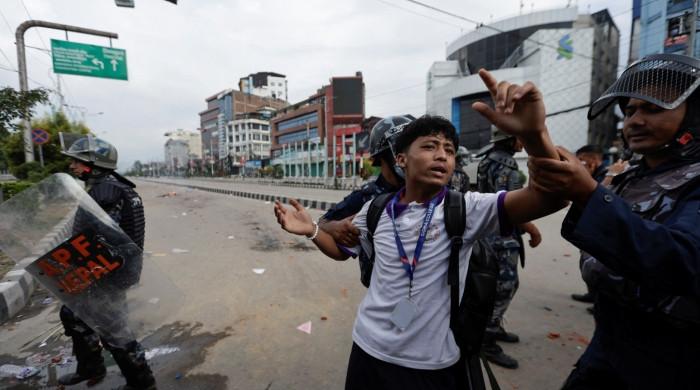
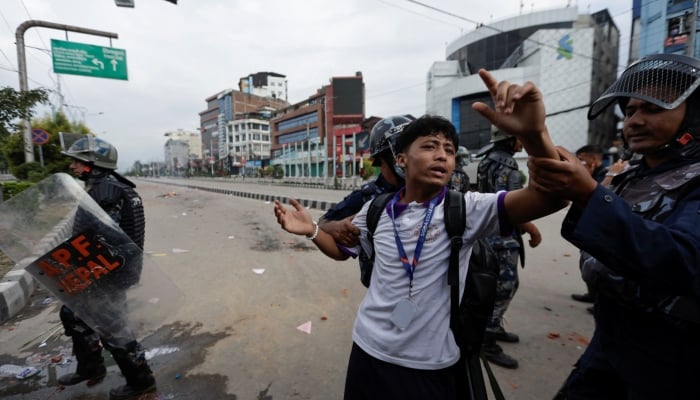
- Protests led by young held in capital and other cities.
- Demonstrators denounce social media shutdown, corruption.
- Police fire tear gas and rubber bullets at protesters.
KATHMANDU: Unrest killed at least 19 people in Nepal on Monday, authorities said, as police in the capital fired tear gas and rubber bullets at protesters trying to storm parliament in anger at a social media shutdown and corruption.
Some of the main youth protesters forced their way into the parliament complex in Kathmandu by breaking through a barricade, a local official said, setting fire to an ambulance and hurling objects at lines of riot police guarding the legislature.
“The police have been firing indiscriminately,” one protester told the ANI news agency. “(They) fired bullets which missed me but hit a friend who was standing behind me. He was hit in the hand.”
More than 100 people, including 28 police personne,l were receiving medical treatment for their injuries, police officer Shekhar Khanal told Reuters. Protesters were ferrying the injured tthe o hospital on motorcycles.
Another two people were killed when protests in the eastern city of Itahari turned violent, police said.
Prime Minister KP Sharma Oli called an emergency cabinet meeting to discuss the unrest, which erupted after thousands of young people, including many wearing their school or college uniforms, took to the streets earlier on Monday.
Many carried flags and placards with slogans such as “Shut down corruption and not social media”, “Unban social media”, and “Youths against corruption”, as they marched through Kathmandu.
Organisers of the protests, which spread to other cities in the Himalayan country, have called them “demonstrations by Gen Z”. They say the protests reflect young people’s widespread frustration with government action to tackle corruption and boost economic opportunities.
“This is the protest by the new generation in Nepal,” another protester told ANI.
A government decision to block access to several social media platforms, including Facebook, last week has fuelled anger among the young. About 90% of Nepal’s 30 million people use the internet.
Officials said they imposed the ban because platforms had failed to register with authorities in a crackdown on misuse, including false social media accounts used to spread hate speech and fake news, and commit fraud.
Batons and rubber bullets
Police had orders to use water cannons, batons and rubber bullets to control the crowd and the army was deployed in the parliament area to bolster law enforcement officers, Muktiram Rijal, a spokesperson for the Kathmandu district office, told Reuters.
He said the curfew, which will remain in force until 10 p.m. local time, had been extended to Kathmandu’s Singha Durbar area, which includes the prime minister’s office and other government buildings.
Violence abated later in the evening although protesters remained in the area outside parliament.
Police said similar protests were also held in Biratnagar and Bharatpur in the southern plains and in Pokhara in western Nepal.
Many people in Nepal think corruption is rampant, and the Oli government has been criticised by opponents for failing to deliver on its promises to tackle graft or make progress to address longstanding economic issues.
Thousands of young Nepalis go abroad every year for work and education.
Rameshwore Khanal, a former finance secretary, said although job creation is not up to expectations, popular anger appears to stem more from unhappiness with government appointments and its inability to stamp out corruption.
Nepal’s social media shutdown comes as governments worldwide take steps to tighten oversight of social media and Big Tech due to growing concern about issues such as misinformation, data privacy, online harm and national security.
Critics say many of these measures risk stifling free expression, but regulators say stricter controls are needed to protect users and preserve social order.
Politics
Peace hopes dented as Russia says Ukraine tried to attack Putin residence
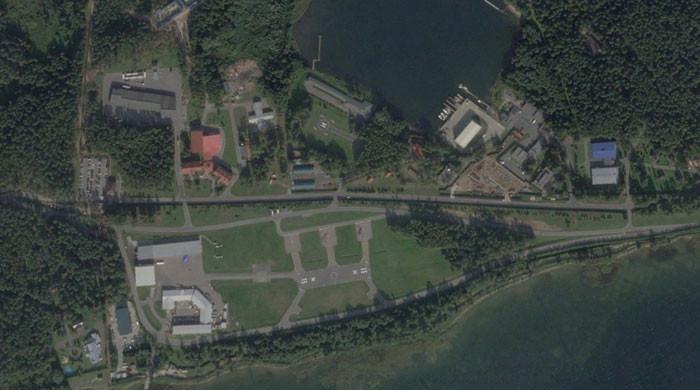
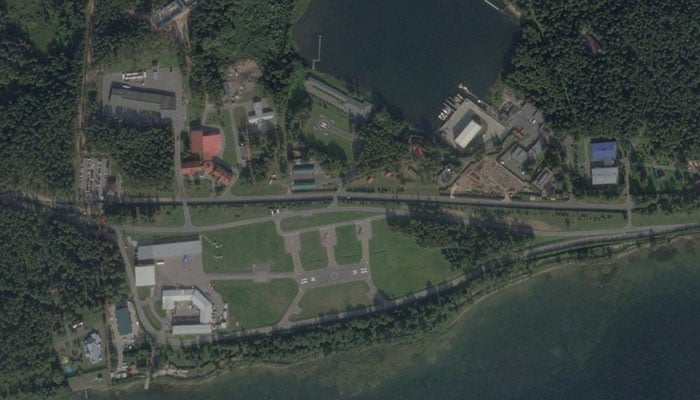
- Trump met Zelenskiy in Florida on Sunday.
- Ukraine says territorial issue remains unresolved.
- Ukraine denies accusation as fabrication to block peace.
MOSCOW/KYIV: Russia accused Ukraine on Monday of trying to attack President Vladimir Putin’s residence in northern Russia, although it provided no evidence to back up an assertion that Kyiv dismissed as baseless and designed to undermine peace negotiations.
The angry exchanges, including a statement by Russia that it was reviewing its stance in negotiations in response to the attack, dealt a new blow to prospects for peace in Ukraine.
On Sunday, US President Donald Trump met President Volodymyr Zelenskiy in Florida and said they were “getting a lot closer, maybe very close” to an agreement to end the war, although “thorny” territorial issues remained.
Putin also struck a defiant tone on Monday, telling his army to press on with a campaign to take full control of Ukraine’s Zaporizhzhia region, and the Kremlin repeated demands for Kyiv to pull its forces out of the last part of the Donbas area that they still hold in eastern Ukraine.
Putin told Trump by phone that Russia, which invaded Ukraine in February 2022, was reviewing its stance following the reported drone attack, an aide said.
Lavrov accuses Ukraine, Zelenskiy issues denial
Foreign Minister Sergei Lavrov said Ukraine had tried to attack Putin’s residence in the Novgorod region west of Moscow on December 28-29 with 91 long-range drones which were all destroyed by Russian air defences. No one was injured and there was no damage, he said in comments reported by Russian media.
“Such reckless actions will not go unanswered,” the veteran foreign minister said, describing the attack as “state terrorism” and adding that targets had already been selected for retaliatory strikes by Russia’s armed forces.
Lavrov appeared in televised remarks not to have offered any evidence for his assertions. It was not clear where Putin was at the time.
Lavrov noted that the attack took place during negotiations about a possible peace deal, and said Russia would review its negotiating stance but not quit the negotiations.
Denying Ukraine had planned such an attack, Zelenskiy accused Moscow of preparing the ground to strike government buildings in Kyiv, saying Russia wanted to undermine progress at US-Ukrainian talks on ending the war.
“Another round of lies from the Russian Federation,” Zelenskiy told reporters via WhatsApp.
“It is clear that we had a meeting with Trump yesterday, and it is clear that for the Russians, if there is no scandal between us and America, and we are making progress – for them it is a failure, because they do not want to end this war.”
He added: “I am sure they are simply preparing the ground for strikes, probably on the capital, probably on government buildings.”
Ukrainian Foreign Minister Andrii Sybiha said on X the attack was a fabrication intended to create a pretext for more Russian attacks on Ukraine and to undermine the peace process. He urged world leaders to condemn Russia over its accusations.
Territorial issues unresolved
Zelenskiy said a bilateral agreement had been outlined with Trump on security guarantees for Kyiv on Sunday, although the US president said they were only 95% ready and Zelenskiy said on Monday that he had sought a 50-year security deal.
Trump also said he expected European countries to “take over a big part” of security efforts with US backing. Agreement on such moves would be complicated, as Russia has said any foreign troop deployment in Ukraine would be unacceptable.
Zelenskiy said on Monday two main issues in a 20-point peace proposal remained to be resolved – control of Ukraine’s Zaporizhzhia nuclear power station, which is in Russian hands, and the fate of the Donbas area.
Russia controls about a fifth of Ukraine, including the Crimean peninsula, which it annexed in 2014.
It claims Donbas – comprising the Donetsk and Luhansk regions – as well as the Zaporizhzhia and Kherson regions, although they are all internationally recognised as Ukraine’s sovereign territory.
Russia wants Kyiv to withdraw troops from parts of the Donetsk region it has failed to occupy. Kyiv wants fighting halted along current front lines, and Washington has proposed a free economic zone if Ukraine pulls troops back.
Underlining Russia’s intention of standing firm on its territorial ambitions, Putin said on Monday his generals should push on with efforts to secure all of Zaporizhzhia region – of which Moscow already controls around 75%.
Colonel-General Mikhail Teplinsky, commander of Russia’s Dnieper military grouping, told Putin Russian forces were 15 km (9.3 miles) from its biggest city, also called Zaporizhzhia.
“In the near future, it is necessary to continue the offensive, together with the East grouping to liberate Zaporizhzhia,” Putin responded.
Politics
Trump-Zelensky talks yield no progress on Ukraine-Russia territorial issues
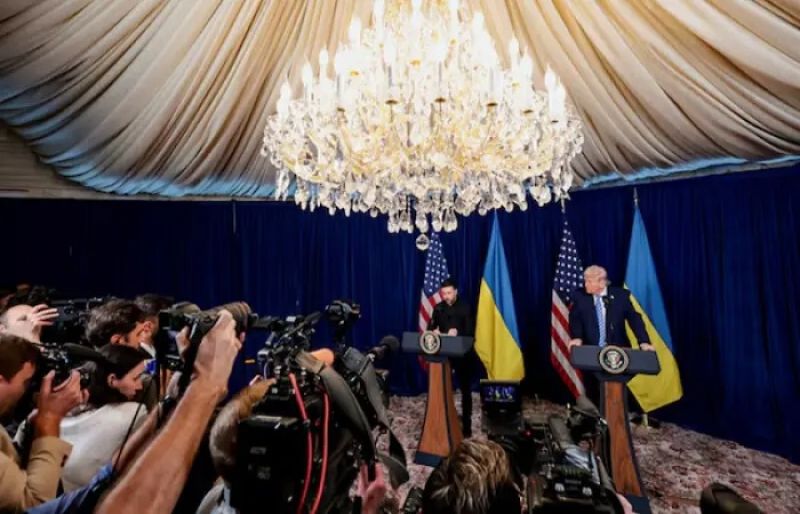

Russia and Ukraine on Monday remained far apart on territorial issues that are blocking a peace deal, despite progress on security guarantees for Kyiv at talks between US President Donald Trump and Ukrainian leader Volodymyr Zelensky.
Trump said after his talks with the Ukrainian president on Sunday that they were “getting a lot closer, maybe very close” to an agreement to end Russia’s war in Ukraine, but that “thorny issues” were still there.
Zelensky said two main issues outlined in a 20-point peace proposal remained to be resolved – control of Ukraine’s Zaporizhzhia nuclear power station, which is in Russian hands, and the fate of the Donbas area of eastern Ukraine.
“Two questions remain: the station – how will the station operate? – and the territory,” Zelensky told reporters on Monday.
Underlining how far apart Kyiv and Moscow are on territory, Kremlin spokesman Dmitry Peskov said Ukraine must withdraw its troops from the small part of Donbas that it still controls, and that Kyiv would lose more land if it did not agree to a deal.
“We are talking about the withdrawal of the regime’s armed forces from the Donbas,” Peskov said.
He said a call was planned soon between Trump and Russian President Vladimir Putin, but did not say when.
Security Guarantees
Trump’s decision to hold talks with Zelensky in Florida on Sunday had widely raised hopes of at least some progress being made towards ending what has become Europe’s deadliest conflict since World War Two.
Russia controls about a fifth of Ukraine, including the Crimean peninsula, which it annexed in 2014. It claims Donbas – comprising the Donetsk and Luhansk regions – as well as the Zaporizhzhia and Kherson regions, although they are all internationally recognised as Ukraine’s sovereign territory.
Russia wants Kyiv to withdraw troops from parts of the Donetsk region it has failed to occupy in four years of war since its invasion of Ukraine in February 2022. Kyiv wants fighting halted along the current front lines, and Washington has proposed a free economic zone if Ukraine pulls troops back.
“There is no detailed concept for a free economic zone yet,” Zelensky said.
Russia has rejected the idea of a ceasefire to allow a referendum to be held on any territorial concessions by Ukraine.
One sign of progress on Sunday came when Zelensky said a bilateral agreement had been reached on security guarantees for Kyiv, although Trump said they were only 95pc ready.
“I told (Trump) that we have been at war for almost 15 years, and would very much like the guarantees to be for longer,” Zelensky said, adding that he had asked Trump to consider a security deal for up to 50 years.
Trump said on Sunday he expected European countries to “take over a big part” of that effort with US backing. Agreement on such moves could be complicated, as Russia has said any foreign troop deployment in Ukraine would be unacceptable.
French President Emmanuel Macron said progress was being made on security guarantees, and countries in the so-called “Coalition of the Willing” would meet in Paris in early January to “finalise concrete contributions”.
Trust between Russia and Ukraine is low.
Despite the recent peace overtures and some exchanges of prisoners of war, mistrust runs deep between Ukraine and Russia.
Russia launched a heavy attack on Ukraine before the talks in Florida began, and has stepped up attacks on Ukraine’s energy facilities as winter approached. Large parts of the capital Kyiv were without power on Monday after the strike, as temperatures were below freezing.
Trump repeated on Sunday, after his call with Putin, that he believed the Russian leader wants the war to end.
“In my opinion, (Putin’s) actions do not coincide with the seemingly peaceful rhetoric he uses in his dialogue with the US president,” Zelensky said, questioning Putin’s commitment to peace.
Zelensky said he was open to any format of communication with Russia, and a meeting would be possible after Trump and European leaders agree on the framework for peace. Peskov said no call between Putin and Zelensky was being discussed.
Putin has said Russia will achieve its aims in Ukraine by force if Kyiv does not want to resolve the conflict diplomatically – making clear it must accept Moscow’s demands.
Several Ukrainians who spoke to Reuters in Kyiv on Monday voiced scepticism about prospects for a lasting peace.
“Putin doesn’t need territory; he doesn’t need Donbas — he wants to destroy the Ukrainians. He destroys us as a nation,” said Nadiia Yevtushenko, a 57-year-old Kyiv resident.
Politics
Three Turkish police officers, six Daesh militants killed in clash, amid national crackdown
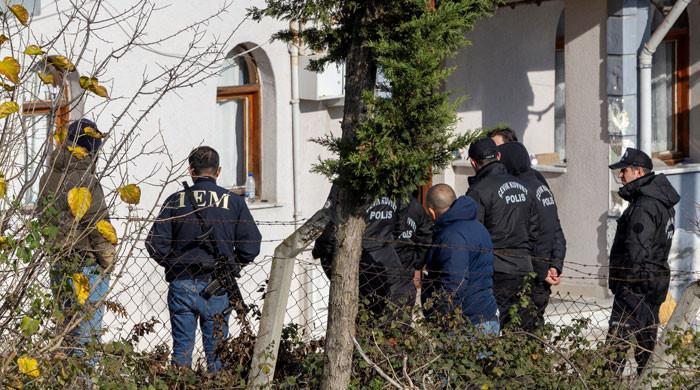
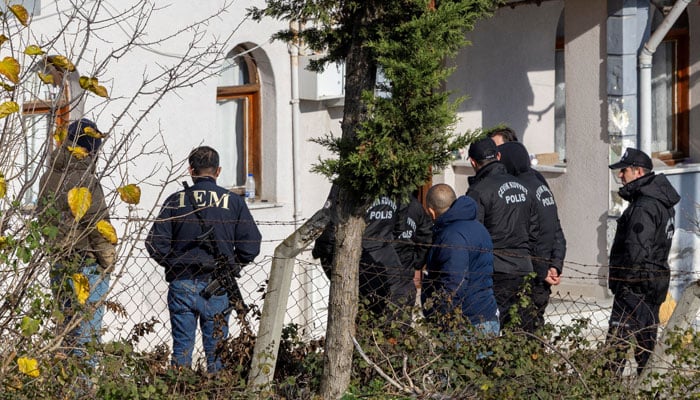
- All six militants were Turkish citizens, says minister.
- Turkey arresteded 138 Daesh suspects last month.
- 108 addresses raided across Turkey early on Monday.
YALOVA: Three Turkish police officers and six Daesh militants were killed in a gunfight in northwest Turkey on Monday, the Interior Minister said, a week after more than 100 suspected Daesh members were detained for planning Christmas and New Year attacks.
Interior Minister Ali Yerlikaya said eight police and another security force member were wounded in a raid on a property in the town of Yalova, on the Sea of Marmara coast south of Istanbul. More than 100 addresses were raided nationwide early on Monday.
Turkey has stepped up operations against suspected Daesh militants this year, as the group returns to prominence globally.
The US carried out a strike against the militants in northwest Nigeria last week, while two gunmen who attacked a Hanukkah event at Sydney’s Bondi Beach this month appeared to be inspired by Daesh, Australian police have said.
On December 19, the US military launched large-scale strikes against dozens of Daesh targets in Syria in retaliation for an attack on American personnel.
Raid lated hours
Police raided the house in Yalova on the suspicion that militants were hiding there overnight. Sporadic gunfire was heard during the operation, which lasted nearly eight hours, according to a Reuters photographer at the scene.
Last week, Turkish police detained 115 suspected Daesh members they said were planning to carry out attacks on Christmas and New Year celebrations in the country.
Yerlikaya told reporters that the militants killed in Monday’s attack were all Turkish citizens, adding that five women and six children were brought out of the property alive.
In the last month, police arrested a total of 138 Daesh suspects and carried out simultaneous operations on Monday morning at 108 different addresses in 15 provinces, he added.
In a post on X, President Tayyip Erdogan offered his condolences to the families of the police officers killed, and said Turkey’s fight with “the bloody-handed villains who threaten the peace of our people and security of our state” will continue “both within our borders and beyond them.”
Wave of Daesh attacks in 2015-17
Police had sealed off the road approaching the house in the early hours and smoke was visible rising from a nearby fire, while a police helicopter flew overhead.
The Istanbul chief prosecutor’s office said last week that Daesh militants were planning attacks against non-Muslims in particular.
Almost a decade ago, the militant group was blamed for a series of attacks on civilian targets in Turkey, including gun attacks on an Istanbul nightclub and the city’s main airport, killing dozens of people.
Turkey was a key transit point for foreign fighters, including those of Daesh, entering and leaving Syria during the war there.
Police have carried out regular operations against the group in subsequent years and there have been few attacks since the wave of violence between 2015-2017.
-

 Sports3 days ago
Sports3 days agoBrooks Koepka should face penalty if he rejoins PGA Tour, golf pundit says
-

 Sports1 week ago
Sports1 week agoPatriots vs. Ravens (Dec 21, 2025) Live Score – ESPN
-
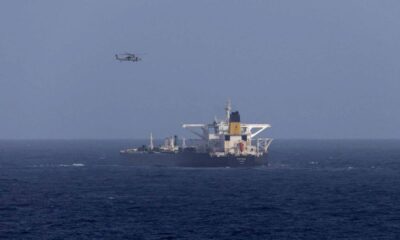
 Politics1 week ago
Politics1 week agoUS intercepts oil tanker off Venezuelan coast, Reports
-

 Sports1 week ago
Sports1 week agoWATCH: Pakistan’s winning moment as Green Shirts clinch U19 Asia Cup title
-

 Business3 days ago
Business3 days agoGovt registers 144olive startups | The Express Tribune
-
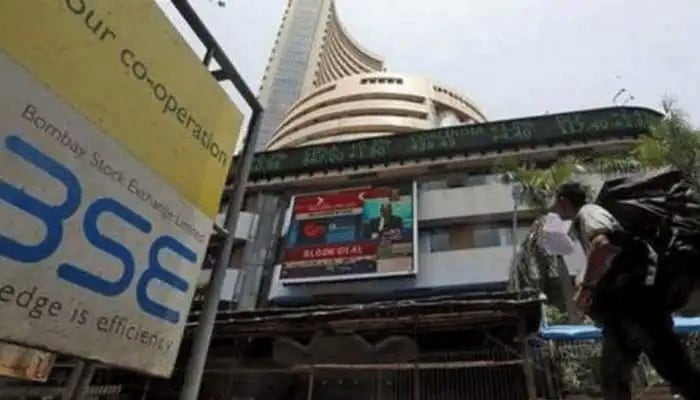
 Business1 week ago
Business1 week agoNeptune Logitek Shares List At 26% Discount, IPO Investors Suffer Nearly Rs 30,000 Losses
-

 Sports1 week ago
Sports1 week agoWilliamson opens up about New Zealand future | The Express Tribune
-

 Politics1 week ago
Politics1 week agoMoscow car blast kills Russian general hours after US talks






